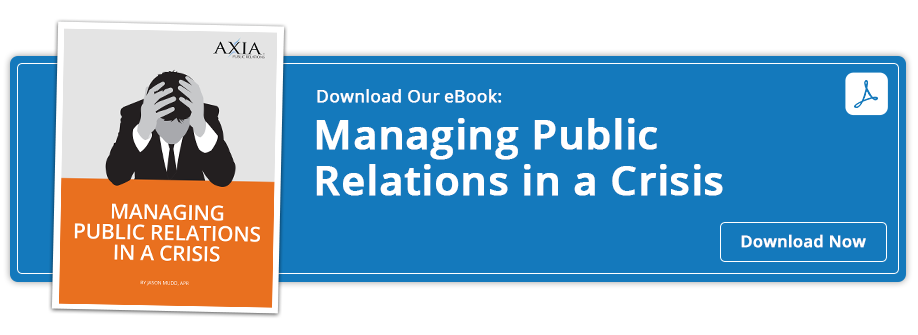 Why the travel and tourism industry needs PR
Why the travel and tourism industry needs PR
A teenager horsing around in your hotel falls from a balcony and is seriously injured. A shark attacks a family enjoying some water sports off your city’s beaches. There’s no way you could predict or prevent occurrences such as these, but the media and the public will expect your organization to answer for them.
When people go on vacation, it’s typically a well-planned, happy time. No one expects disaster to strike, but it sometimes does. This is one reason why even those in the feel-good, fun-loving travel and tourism industry can still use assistance from PR.
How PR can help the travel and tourism industry in the event of a crisis
Studies have shown that approximately 40 percent of businesses that face a crisis don’t survive it. Don’t let your company become a part of this sad statistic.
Crises in the tourism field bring up many questions: Will you have to close your facilities? Are people going to file a lawsuit? Does the crisis mean that visitors won’t come back and spend money with you again next year? PR can help you craft the right messages and prepare your company. For example, PR pros can help you to:
Have your crisis communication strategy in place before a tragedy happens. This will help you avoid those long periods of indecision and conflicting messages that can make a crisis even worse.
Learn to use social media to your advantage. Today, practically everyone is on social media and checks it frequently throughout the day. That makes it a great vehicle to utilize for crisis communication. You can use it to respond to queries, provide updates on the situation and release statements.
Only allow a well-trained spokesperson to speak to the media and public on behalf of your company. This person will serve as the public face of your company, and if she seems unsure, unprofessional or confused, that’s how everyone will view your entire organization. In addition, any employees who aren’t authorized to speak should know to direct all media inquiries to the designated spokesperson. They must also be made aware of the damage it can cause when other voices interfere with your company’s official messages.
Coordinate inquiries and responses. Perhaps your crisis involves law enforcement or an environmental component. Local government may also have a stake. Multiple organizations could mean different audiences clamoring for answers, and with help from PR, you can craft consistent, targeted messages.
Benefits of travel and tourism PR
Development of PR campaigns to attract visitors can include garnering news coverage, producing printed materials and creating videos.
PR can perform online reputation management. Customers and prospects use the Internet and review sites to compare destinations and plan their trips now more than ever. It is crucial that what they find about your area, hotel or company is positive. If not, they will choose to spend their time and money elsewhere. A couple of bad reviews on any popular site can go far in swaying opinion and damaging your brand. You must know what people are saying about you and work to encourage positive reviews.
Distinguish your brand to better connect with target audiences. PR can help you tell your story so that customers understand who you are and why they should choose your company or destination over the competition.
The right PR firm can make all the difference
Axia Public Relations will help you plan for – and avoid – a crisis. Contact us today or download our e-book Managing Public Relations in a Crisis to learn more about how we can protect your brand and increase your market share. Lisa Goldsberry is a writer for Axia Public Relations with more than 15 years of public relations experience. She specializes in business, higher education and technology PR. Connect with Axia Public Relations on Twitter @axiapr.
Lisa Goldsberry is a writer for Axia Public Relations with more than 15 years of public relations experience. She specializes in business, higher education and technology PR. Connect with Axia Public Relations on Twitter @axiapr.
Featured image credit: <a href="http://www.123rf.com/#
Topics: public relations, crisis communications



Comment on This Article